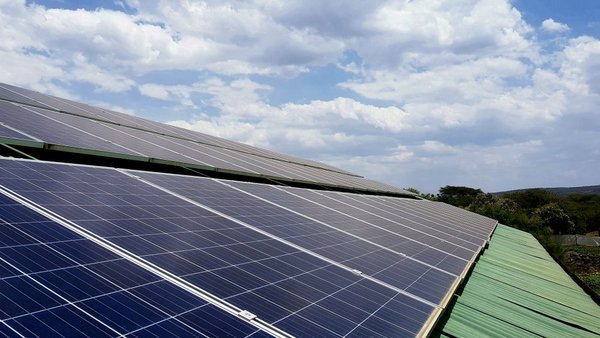 Read this article in French
Read this article in French- Share this article
- Subscribe to our newsletter
Germany surpasses climate financing goals for emerging economies and developing countries
With the approval of what were once again high amounts of budgetary funds for 2022, Germany already reached the pledged annual target level of six billion euros of climate financing three years earlier, the Federal Ministry for Economic Cooperation and Development (BMZ) and the Federal Ministry for Economic Affairs and Climate Action (BMWK) declared in a joint press release in late September. Germany was thus keeping its fair share of the promise made by the industrial nations to mobilise an annual 100 billion US dollars to combat climate change in developing countries and emerging economies.
With a total of 6.39 billion euros of international climate financing from budgetary funds, the Federal Government has surpassed the previous year’s volume by around a billion euros. About 44 per cent of this is accounted for by the important sub-area of adaptation to climate change, roughly 2.8 billion euros.
The Federal Government was therefore well on the way to providing its contribution to the internationally agreed goal of doubling, compared to 2019, adaptation financing to 40 billion USD by 2025, the BMZ writes. In 2022, for example, significantly more food security development projects were financed which address climate change as the cause of droughts and hunger and, for example, promote climate-adapted methods in agriculture.
In addition to budgetary funds, other funding has been included for the 100 billion USD pledge which was mobilised with public means. If this market funding as well as privately mobilised finance is added, German climate funding adds up to a total of roughly 8.8 billion euros in 2022. Here, for the first time, privately mobilised money rose to just below 500 million euros (compared to 170 million euros in 2021). Also in 2022, the Federal Government secured climate projects to the tune of approximately 271 million USD in the context of export loans in developing countries and emerging countries.
Bilateral negotiations consider partner countries’ interests
According to the BMZ and the BMWK, a major share of the funding flows into climate projects agreed by Germany with its partners in bilateral negotiations. This partnership and decentralised approach results in projects being implemented which are in the interest of the partner countries and fit in with their development plans.
In 2022, the Development Ministry gave climate protection and climate adaptation high priority in these negotiations. Many partner countries have responded positively, so that as a result, significantly more climate projects supported by Germany were agreed. These include new climate and development partnerships with Rwanda, India, Peru and Kenya.
The new Just Energy Transition Partnerships with South Africa, Indonesia and Vietnam also came to bear in 2022.
Financing Global Environmental Initiatives
A further share of climate financing is accomplished via multilateral funds such as the Green Climate Fund, the Global Shield against Climate Risks or the Global Environment Facility.
The “International Climate Protection Initiative” (IKI) is a further important instrument of international financial commitments made by the Federal Republic which is credited 100 per cent to climate financing. Via the IKI, projects are supported which promote climate protection and biodiversity conservation in developing countries and emerging economies.
The IKI responds in particular to relevant developments resulting from the climate negotiations and supports countries for example in making their Nationally Determined Contributions (NDCs) more ambitious, expanding financial sectors focusing on green, renewable energies or decarbonising industry.
Eighty-six per cent of the entire international climate financing was agreed by the BMZ with its world-wide partners. The other funds come mainly from the IKI, which is coordinated by the BMWK, and in which the Foreign Office and the Federal Environment Ministry are also participating.
(BMZ/wi)
More information:





Add a comment
Be the First to Comment